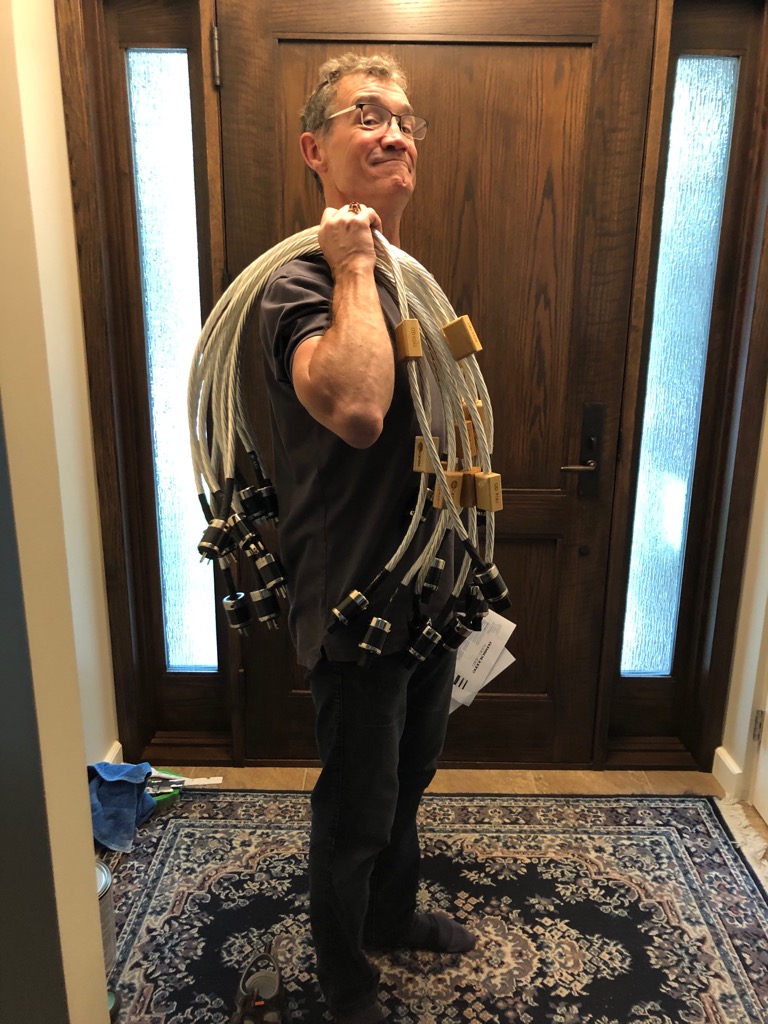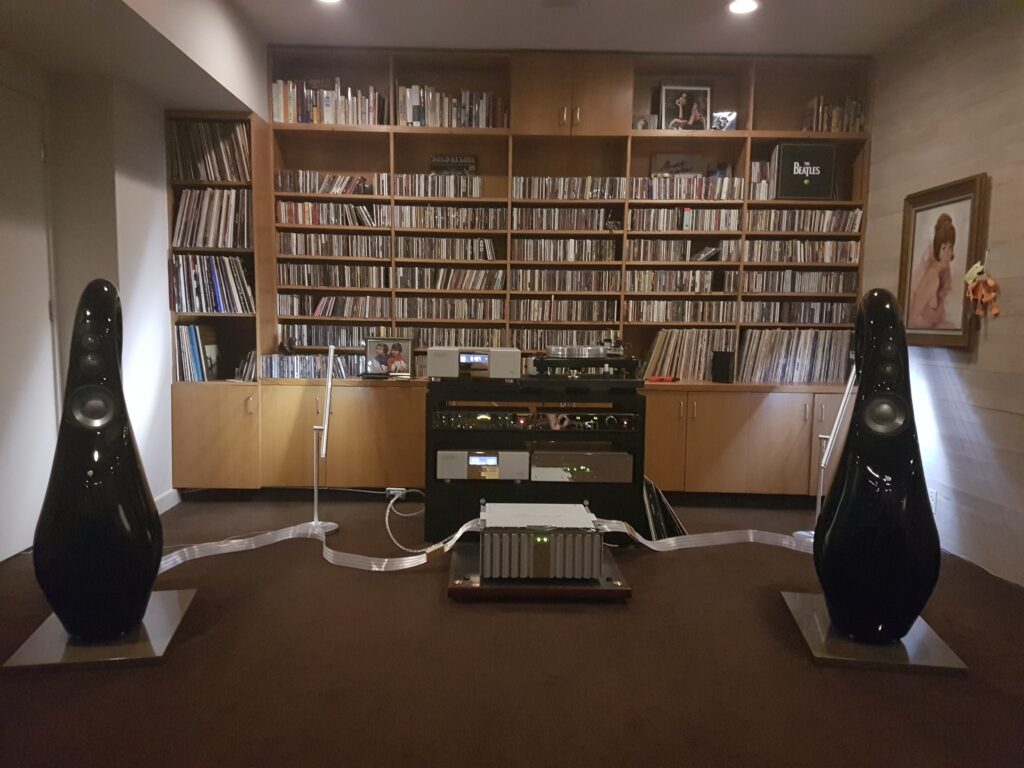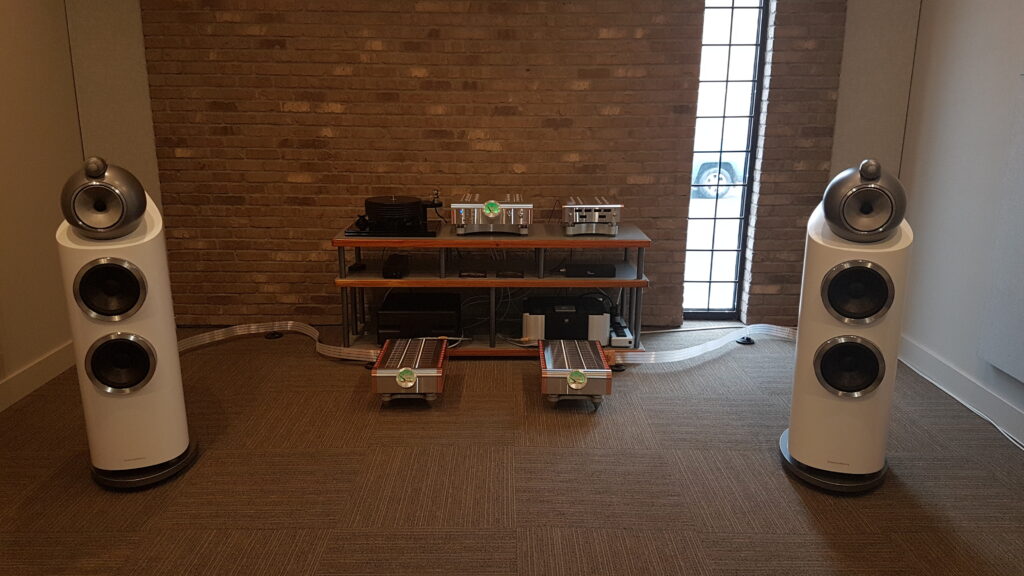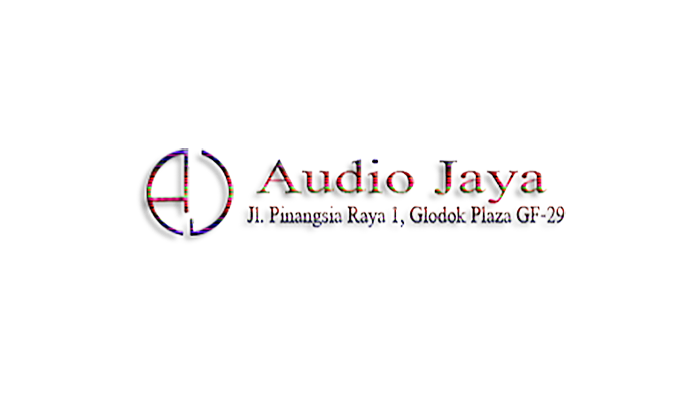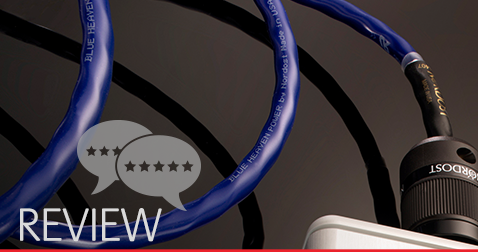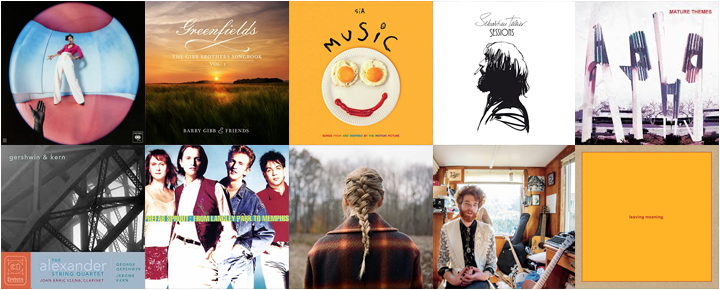Real music lovers can find the melody in everything. From the park to the concert hall, our friend Nelson Brill is always on the hunt for great sound. In this blog, Nelson reviews a bevy of albums recorded by fantastic artists for you to listen to in the New Year.
SAMBA TO BLUEGRASS: A BOUNTY OF MUSIC TO START THE NEW YEAR
By Nelson Brill January 17, 2021

“One good thing about music, when it hits you feel no pain.
So hit me with music, hit me with music now..”
Bob Marley, “Trenchtown Rock”
Here is a new crop of audiophile quality recording recommendations to “hit you with music” – and enter 2021 with renewed spirit and resiliency:

First up is a kinetic CD that transcends borders with its irresistible grooves and soaring melodies. Lagos Pepper Soup [Worldwind Recordings; www.whirlwindrecordings.com], is a new recording from Michael Olatuja, gifted bassist, composer and arranger, who has gathered a stellar cast to deliver his cinematic creation. Olatuja plays both acoustic and electric bass on Lagos Pepper Soup and his bass propels the reveling drama with playful presence, stutter-stepping electricity and soulful plunges (coherent and tactile).

The musical landscape that Olatuja and his companions inhabit on Lagos Pepper Soup is a joy to discover. First, there are dancing R. & B. grooves that blend with soulful melodies on such prancing cuts as “Brighter Day” (with singer Laura Mvula leading the Lagos Pepper Soup String Orchestra in an uplift of string colors and vocal passion) and “The Hero’s Journey” where the effervescent violin of Regina Carter, (gilded with the delicate vocals of Thana Alexa), soars to strike a positive vibe. Roistering blues and Afro-pop are also elemental ingredients in Olatuja’s eclectic Lagos Soup where Lionel Loueke’s prickly guitar lines dance amongst the reveling vocals of Angelique Kidjo (on the title cut) and deftly propel the gracious vocals of Dianne Reeves on the leaping “Soki.”

Olatuja’s compositions convey release and restoration in striking ways. He blends playful jazz in his beautiful “Home True” where Olatuja’s bass melds with vocalist Becca Steven’s lithe wordplay and Robert Mitchell’s sprite piano. On “Bola’s Song,” the weightless hues of Gregoire Maret’s harmonica blend spritely with flowing strings, bass and resonant percussion. The mighty Joe Lovano welds his glowing tenor saxophone in Olatuja’s “Leye’s Dance”, a rollicking joy ride propelled by Lovano’s cavorting runs and golden holds.

Olatuja’s uplifting global feast ends on the soulful caress of his composition, “Grace”, with pianist Aaron Parks shimmering in light keyboard banter in the embrace of Terreon Gully’s steady drum grooves, Samir Zarif’s regal sax and Olatuja’s resounding bass in upbeat companionship.

Speaking of upbeat companionship, there is nothing more joyful than exploring the original melodies concocted by another fresh voice: jazz pianist Joey Alexander, on one of my favorites of his rich discography, his 2018 recording, Eclipse [Montema Music; www.motema.com]. Eclipse finds Alexander partnered with drummer Eric Harland and bassist Reuben Rogers, a most marvelous partnership.

I last recommended a recording with Harland and Rogers when they appeared in sterling partnership with saxophonist Charles Lloyd and pianist Jason Moran- on the superb and venturesome 2017 live recording, Passin’Thru [Blue Note; www.bluenote.com], particularly glorious in its vinyl edition for its crackling alive presence to these reveling live performances.

Alexander’s Eclipse is another gem that vividly comes alive and allows one to intimately explore all the sparks of dialogue that flow effortlessly between these three consummate musicians in flight.

Positive vibes abound on Eclipse. Take, for instance, the opening “Bali”, an original tune that positively gallops on Alexander’s melodic swing and his deft sweetness in the craft of his notes throughout his omnivorous range. Alexander’s “Draw Me Nearer” hits a beautiful gospel stride with Rogers’ deep plucks and plunges, Harland’s sparkling brushwork and Alexander’s soft touches that shimmer and sway. Bold saxophonist Joshua Redman joins the band for a soulful turn on Roy Noble’s “The Very Thought of You,” set to a dreamy pace in Redman’s breathy holds and soulful runs nestled in Alexander’s blocks of blues chords.

There’s also plenty of bebop glee on Eclipse. One great example is the band’s version of the Coltrane classic, “Moment’s Notice”, in which Rogers glides in quick elastic strides on his elastic bass while Alexander spins the length of his keyboard in swooping pounces. The band digs into Alexander’s “Fourteen” with more up-beat chemistry (highlighted by Redman’s bursting sax) and Alexander’s pulsating “Space” is another gleeful swing fest where each player delights in adding their own twinkling banter.. These romping gems are built from the agile and inventive foundation of Harland at his astonishing drum kit. From the swish of delicate brushes (on the outer rings of his shining cymbals) to his fusillades of shockingly quick, low drum thunder, Harland’s percussive engine is in fine, full throttle form.

A final highlight from this sterling disc is Alexander’s poignant solo performance of Lennon and McCarthy’s tune, “Blackbird”, a beautiful melody for our times. Alexander turns the indelible melody of “Blackbird” on his keyboard like one would a piece of wood on a lathe, re-casting it and carving his own joyful and insightful moments into Lennon and McCarthy’s inviting vessel. I look forward to auditioning Alexander’s new recording, Warna [Verve Records], where he is joined by another stellar rhythm section, drummer Kendrick Scott and bassist Larry Grenadier, in new trio explorations rooted in Alexander’s open-hearted lyricism and spirited groove.

Ben Rosenblum is another young pianist, accordionist and composer with a forward-thinking, lyrical spirit. Rosenblum has created a uniquely joyful and plucky universe on his new recording with his “Nebula Project”, Kites and Strings [One Trick Dog Records; www.benrosenblummusic.com].

Rosenblum’s musical palette is open-eared on this new fascinating recording. His compositions combine the sounds of his sprite and graceful accordion and piano play with a feast of other fresh sounds, including Rafael Rosa’s fuzz ladened electric guitar; Wayne Tucker’s crisp trumpet; Sam Chess’ regal trombone; Jasper Dutz’s frolicking sax and bass clarinet and a sparkling backbone from bassist Marty Jaffe and drummer Ben Zweig – all primed for adventure.
Kites and Strings delivers its fresh colors and playful flow on a recording that has a wide and layered soundstage, natural image dimensionality and an up-front presence where instrumental colors project with crisp outlines and zestful timbres. The opening track, “Cedar Place” is a great example of Rosenblum’s delectable verve. It dances on Rosenblum’s spangled accordion, (breathily delicate in its spins and runs), tumbling in the company of Tucker’s shining trumpet and Dutz’s frisky tenor saxophone.

Dutz’s bass clarinet play in particularly vibrant on a number of Rosenblum’s originals. These include the gorgeous “Halfway To Wonderland” in which Dutz’s bass clarinet dips and flutters next to Rosenblum’s sprite piano runs and deep bluesy chords (reminding of the great Dave Brubeck’s keyboard twinkle) and on Rosenblum’s “Laughing On The Inside” where Dutz’s bass clarinet joins Rosa’s expansive guitar to churn a frolicking Zweig drum solo.
The band also digs its creative toes into inventive, glowing balladry on Kites and Strings. These include Rosenblum’s soft accordion/piano flow on his “Motif From Brahms” and on his lilting version of Leonard Bernstein’s “Somewhere” in which trumpet, bass clarinet and accordion entwine in Bernstein’s sweet melody. Neil Young’s “Philadelphia” is also given fresh treatment: the tune is a sweet, slow swagger (ignited on Sam Chess’ warm trombone dips) where everyone takes a turn to shape Young’s elegiac melody in their fresh rapport.

Listening to Wayne Tucker’s clarion and crisp trumpet light up the inventive landscape of Rosenblum’s Kites and Strings inspires a listen to another dynamic trumpeter, Diego Urcola, and his new exciting recording.

On El Duelo [Sunnyside Records], Urcola joins forces with the singular woodwind maestro, Paquito D’Rivera, and the dynamic rhythm section of bassist Hamish Smith and drummer Eric Doob, to deliver a blowing session that is jubilant, bold and soulful.
El Duelo delivers a rich collection of classic and original tunes perfectly suited to focused and sharp improvisations from this tight-knit band. The great dynamic shifts, brazen colors and tactile details on this superb recording allow us to hear deeply into each performer’s technique and playful group magnetism.

It’s a special treat to hear every rustling, breathy run of D’Rivera’s clarinet and alto sax. Each instrument in his hands is a vessel of dancing, tumbling wonder. D’Rivera’s clarinet flows with an irresistible dancing pulse on such highlights as Gerry Mulligan’s “I Know, Don’t Know How” (blending with the slow bluesy walk of Smith’s pungent bass) or caresses in slippery plunges and woody leaps (alongside Urcola’s shining trumpet) on the title cut. D’Rivera is clearly inspired by his young compatriots on this special outing as he exchanges musical dialogue with these young lions with consummate ardor, invention and playful charisma.
Urcola’s bold trumpet is a perfect foil for D’Rivera’s inspired presence. Urcola attacks Ornette Coleman’s “Una Muy Bonita” and the Pugliese/Tizol’s classic tune, “La Yumba/Caravan” (arranged by Ethan Iverson), with spirited verve. The recording allows us to hear not only his highest reaches without glare (a rare feat) but also how Urcola loves to punctuate his arching upward climbs with an initial burst of a crisp accentuated note, illuminating his pathway upward.

In contrast to his crisp trumpet, Urcola’s flugelhorn is a warm embracing vessel, velvety and radiant, on such dusted beauties as Piazzolla’s “Libertango” and Urcola’s original, “Tango Azul”. We can hear deeply into his technique as how he squeezes his lips tight around his flugelhorn’s mouthpiece, (to form a warm, light trill) then relaxes into a slurring, fluttering descent in stately form.
The metallic sear of Urcola’s trumpet, joyful and leaping, is a nice segue to enjoying a batch of sunny new acoustic string recordings, crisp and toe-tapping.

First, there is the balm of bluegrass in the hands of legendary pickers, Doc and Merle Watson, who fire off a bevy of easy-going firecrackers on a new curated recording, Songs Doc Didn’t Sing [FLi Records, www.fliartists.com], which brings to fresh life tunes recorded by the Watsons for Flying Fish Records in the 1980’s.

Songs Doc Didn’t Sing captures the Watsons in crisp, stutter-stepping form joined by a stellar band: fiddlers Mark O’Connor, Sam Bush and Byron Berline; clarinetist Tom Scott; drummer Ron Tutt and bassist Michael Coleman. Songs Doc Didn’t Sing joyfully documents how the Watsons could spin an intriguing tale (of comic shape-shifting urgency or waltzing beauty) in a few bars of music, supremely assured in their telling. For instance, this new collection gifts us with the sly, romping “Sheeps in the Meadow”, “Down Yonder”, “Black Mountain Rag” and “Fisher’s Hornpipe” (where the Watsons are joined in their chivalry by a clacking set of “bones” played by Hank “Bones” Kahn in the far-left of the stage). In these rollicking numbers, the Watsons’ guitar wizardry is transfixing: playful ricochets of fingerpicking glee, crackling string bends and frenzied runs. This barnstorming can also shift from pell-mell sunshine to deep pools of waltzing sway, such as on the gentle “Windy and Warm”; the beauty in the churning depth of “Below Freezing” (with a gorgeous swirl by clarinetist Scott) and the bluesy twang of “John Henry/Worried Blues”. The Watsons can even take an old chestnut like “Take Me Out To The Ballgame” and re-fashion it into a fresh grooving soar. Their sparkling gem, “Talking to Casey” concludes this swanking collection with another sunny pulse, firing away on the Watson’s nylon string hurtles into the slippery uplift of O’Connor’s crisp fiddle.

The Watsons’ merry bluegrass inspires a listen to a final selection for this installation of listening joy: the easy-flowing, splendidly crafted music of virtuoso guitarist, Diego Figueiredo. Figueiredo’s new CD, Compilation, (released on another favorite audiophile label, Arbors Records [www.arborsrecords.com], is beautifully recorded and offers a delectable slice of Figueiredo’s mastery that spans continents and styles with glee.

Figueiredo’s pliant guitar is a fresh voice, full of nimble delights and soulful charm. His solo acoustic version of Chick Corea’s “Spain” is a dazzling invention with feisty string bends and crisp strums. His “Samba In New York” is another burbling feast of string snapping pizzicatos (always in the service of melody), blended with the colors of Gabriel Grossi’s spidery harmonica glow. The weightless sparks of Edu Miranda’s mandolin join Figueiredo’s acoustic guitar on a twinkling “Xodozinho” and “Tico-Tico No Fuba” and “Paschoa” bring dancing bursts of Brazilian sway and funk where Eduardo Machado’s bass and Fernando Rast’s crackling wood rims ignite around Figueiredo’s boundless string inventions. In contrast to this toe-tapping frolics, Figueiredo’s version of “Linda Flor” is a molten creation as Figueiredo’s solo electric guitar radiates with sumptuous deep colors and unkempt beauty. Compilation concludes with the shimmering bloom of Figueiredo’s “Picote,” where Figueiredo and his partners explore a flowing lyrical groove that illuminates both the joyful peppery bite and the soulful wanderlust of Figueiredo’s music – sustaining our spirits for another day.

You can read more of Nelson’s concert reviews at www.bostonconcertreviews.com.


